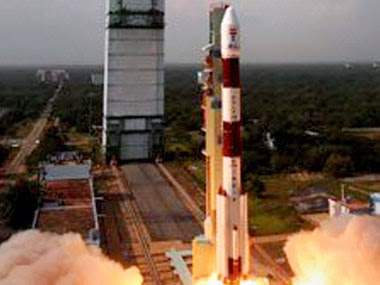 |
| Isro has said the mission is on track: PTI |
This manoeuvre planned to raise the apogee (farthest point to Earth) from 71,623 km to one lakh km but could only achieve 78,276 km on the back of an incremental velocity of 35 metres/second as against an originally planned 130 metres/second. Isro has said the mission is on track
“The spacecraft is in normal health. There is no concern at all. There is no problem at all in the system. Mars mission is 100 percent safe”, an ISRO spokesperson told PTI here, after the below-par operation raised an alarm in some quarters.
The Bangalore-headquartered Isro has now planned a supplementary orbit-raising operation tomorrow at 0500 hrs IST to raise the apogee to nearly one lakh km.
During the fourth orbit-raising operations, the redundancies built-in for the propulsion system were exercised — energising the primary and redundant coils of the solenoid flow control valve of 440 Newton Liquid Engine, and logic for thrust augmentation by the attitude control thrusters, when needed.
“However, when both primary and redundant coils were energised together, as one of the planned modes, the flow to the Liquid Engine stopped.The thrust level augmentation logic, as expected, came in and the operation continued using the attitude control thrusters. This sequence resulted in reduction of the incremental velocity”, Isro said.
“While this parallel mode of operating the two coils is not possible for subsequent operations, they could be operated independently in sequence”, according to the space agency. During the orbit-raising operations conducted since 7 November, Isro has been testing and exercising the autonomy functions progressively, that are essential for Trans-Mars Injection (TMI) and Mars Orbit Insertion (MOI).
During the first three orbit-raising operations, the prime and redundant chains of gyros, accelerometers, 22 Newton attitude control thrusters, attitude and orbit control electronics as well as the associated logics for their fault detection isolation, and reconfiguration have been exercised successfully, ISRO said.
“The prime and redundant star sensors have been functioning satisfactorily. The primary coil of the solenoid flow control valve was used successfully for the first three orbit-raising operations”, it added. PTI


0 comments :
Post a Comment